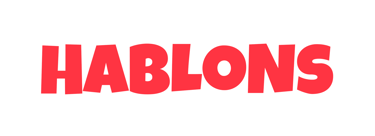Holding On Too Tight? Understanding “Job Hugging” in Today’s Workplace
BUSINESS
9/22/2025
A1–A2 Level
Vocabulary
uncertainty – not sure what will happen. There is uncertainty about tomorrow’s weather.
consultancy – a company that gives advice. She works for a business consultancy.
unprecedented – never happened before. The pandemic caused unprecedented changes.
stable – not changing, safe. My job feels stable now.
resignation – when you leave a job. He gave his resignation last week.
Text
Some workers are choosing to stay in their jobs instead of changing. This is called “job hugging.” People are not always happy with their jobs, but they feel uncertainty about finding a new one.
Experts say this happens because of big world events and new technology, like AI. Workers want to feel stable, so they “hug” their jobs tightly.
For companies, this can be good or bad. It saves money because they don’t need to hire new people or raise salaries. But it can also be a problem because workers may not grow or learn new skills.
To help, businesses should give training and opportunities, so staff can keep learning while staying in their roles.
Comprehension Questions
What does “job hugging” mean?
Why are some people job hugging?
How can companies help workers who are job hugging?
Personal Questions (15)
Do you like your job?
Would you change your job soon?
Do you feel safe in your work?
Have you ever quit a job?
Do you know someone who is job hugging?
Do you like to try new things?
Would you feel scared to change jobs?
Is it easy to find work in your city?
What kind of job would you like in the future?
Do you think AI will change jobs in your country?
Do you like to learn new skills at work?
Do you want to stay in one company for many years?
Would you take a risk for a better job?
Do you prefer a stable job or an exciting one?
Do you know someone who has given their resignation recently?
Answers
Staying in a job instead of changing.
Because they feel uncertain or want stability.
By giving training and development opportunities.
B1–B2 Level
Vocabulary
uncertainty – the state of not knowing what will happen. There is uncertainty about the economy.
consultancy – a business that provides professional advice. He found work in a consultancy firm.
unprecedented – never seen before. The crisis created unprecedented challenges.
stable – not likely to change suddenly. The company’s finances are stable.
resignation – the act of leaving a job. Her resignation letter surprised her boss.
stagnate – stop improving or developing. Without training, careers can stagnate.
Text
A growing workplace trend is called “job hugging.” Instead of seeking new opportunities, many employees are choosing to hold on to their current jobs. They’re not staying because they love their positions but because of fear and uncertainty in the job market.
This behavior is linked to unprecedented global changes and the influence of AI, which make workers cautious. Companies benefit from reduced recruitment costs and wage pressure, since staff aren’t leaving.
However, there are downsides. Workers who are job hugging may stagnate, missing out on career growth. Younger employees also find fewer opportunities to advance when older workers don’t move on.
Experts suggest that companies can turn this into an advantage by investing in training and professional development. That way, they can enjoy a stable workforce while still building future skills.
Comprehension Questions
Why are workers job hugging instead of changing jobs?
What are two negative effects of job hugging?
How can companies make job hugging more positive?
Personal Questions (15)
Have you ever stayed in a job just for security?
Would you describe your job market as stable?
How has AI affected work in your field?
Do you think younger workers have enough opportunities?
Have you ever felt your career was stagnating?
What would motivate you to resign from a job?
Do you think companies should pay more attention to staff development?
Do you prefer security or career growth?
Would you accept a small pay raise to stay at your job?
How do you react to uncertainty in your career?
Do you think quiet quitting and job hugging are similar?
Would you advise graduates to “hug” their first job?
Is it risky to switch jobs during uncertain times?
How often do people in your country change jobs?
Would you job hug if the economy was weak?
Answers
Because of uncertainty in the job market and global changes.
Workers may stagnate, and younger employees may have fewer opportunities.
By offering training and development programs.
C1–C2 Level
Vocabulary
uncertainty – lack of predictability. Markets face great uncertainty this year.
consultancy – an advisory business offering expertise. The consultancy provided strategic solutions.
unprecedented – never previously experienced. Unprecedented challenges reshaped the global workforce.
stable – resistant to sudden change. A stable workforce is a valuable asset.
resignation – formal departure from a role. His resignation shocked the entire department.
stagnate – to stop progressing. Without innovation, businesses stagnate.
Text
A new workplace phenomenon, dubbed “job hugging,” is reshaping career paths. Rather than pursuing advancement, many employees cling to their current positions. This choice is not fueled by passion but by fear of market uncertainty, automation, and unprecedented economic shifts.
While companies initially welcome a stable workforce, the long-term impact is more complex. Employees who avoid change risk allowing their careers to stagnate, while simultaneously limiting upward mobility for younger colleagues.
For businesses, job hugging offers financial relief: lower recruitment costs, reduced salary competition, and less turnover. Yet it may also breed complacency, undermining innovation and professional growth.
Experts argue that the solution lies in proactive investment. Organizations must design robust learning and development programs, enabling staff to expand their skills while maintaining stability. In this way, job hugging could be reframed from a defensive reaction into a sustainable career strategy.
Comprehension Questions
Why do employees engage in job hugging, according to experts?
How does job hugging affect both workers and younger employees?
What strategies can companies adopt to counteract stagnation?
Personal Questions (15)
How do you interpret the concept of job hugging?
Do you think it reflects fear, loyalty, or practicality?
Should workers prioritize stability over ambition?
How does economic uncertainty affect your career decisions?
Would you stay in a job you disliked for security?
How do you balance professional growth with risk?
In your opinion, is job hugging worse than mass resignation?
Do organizations have a duty to prevent employee stagnation?
How might job hugging influence innovation in an industry?
Should career development be an individual or corporate responsibility?
What parallels can you draw between job hugging and quiet quitting?
How might job hugging affect generational dynamics in the workplace?
Do you think job hugging is more common in certain cultures?
Could job hugging eventually harm national economies?
What would your ideal balance between stability and change look like?
Answers
Because of fear, uncertainty, and global changes like automation.
Workers may stagnate, while younger employees face blocked opportunities.
By creating strong training and development programs.


